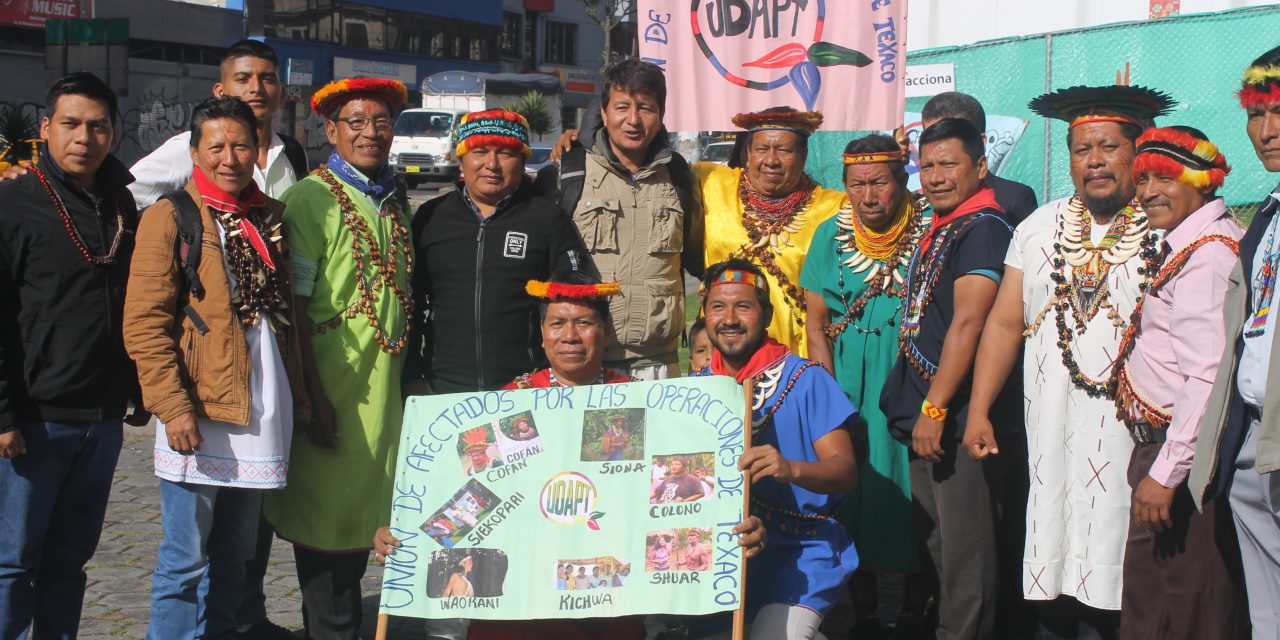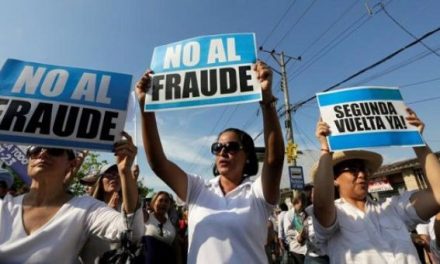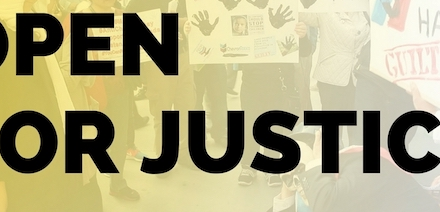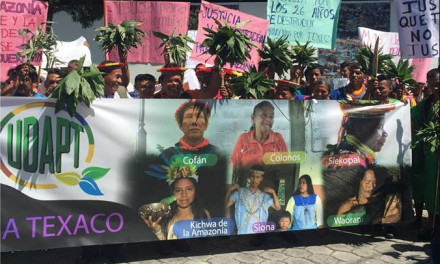Canadian Court Denies UDAPT Request for Chevron Canada to Respond for Environmental Crime in Ecuador. Affected Ecuadorians Appeal before the Supreme Court
Quito, May 23, 2018 – Through a ruling issued today, the Court of Ontario dismissed the evidence presented by the affected Ecuadorians to link the capitals of Chevron Canada and Chevron Corporation. The decision of this Court will be appealed before the Supreme Court.
This decision of the Toronto Court is given more than a month after the last hearing, which was attended by a delegation from the UDAPT (Union of the people Affected by Oil Operations of Texaco) conformed by the member of the UDAPT committee and indigenous Kichwa leader Guillermo Grefa, and the President of the CONAIE (Confederation of the indigenous nationalities of Ecuador), Jaime Vargas, accompanied by the Ecuadorian lawyer Julio Prieto.
During the hearing, the affected represented by the Canadian lawyer Alan Lenczner, presented evidence that Chevron Canada belongs to Chevron Corp and depends economically on it. They delivered the equity statements that the parent company presents annually in the United States, in which assumes ownership over all of its subsidiaries, including Chevron Canada. Were also presented documents that prove that the acquisitions made by Chevron Canada are under the approval of the parent company and others that determine Chevron Canada intermediates the company’s investments in other countries, such as Nigeria and Indonesia. In addition, they revealed the existence of seven levels of subsidiaries, under which the multinational seeks to hide their capital and evade any judicial responsibility.
These evidences were not validated by the Canadian judges even though the Chevron Corporation’s own lawyer recognized the right of those affected to seize the subsidiary, regardless of the number of subsidiaries that intermediate between the two. The representative of the company accepted that the number of subsidiaries does not extinguish the right of the Ecuadorian plaintiffs. He also admitted that this situation does not correspond to the economic reality, but to the legal reality. That is precisely the problem, said Pablo Fajardo: “If the economic reality does not correspond to the legal reality means that laws or jurisprudence are obsolete and need to be adapted to the new realities of the operation of transnational corporations. The interests of companies should not be protected above human rights.






